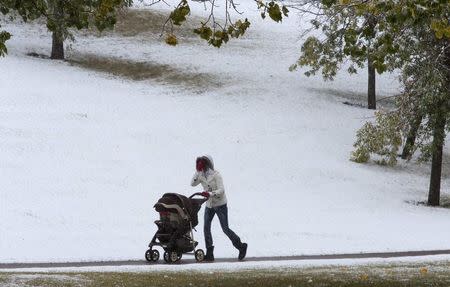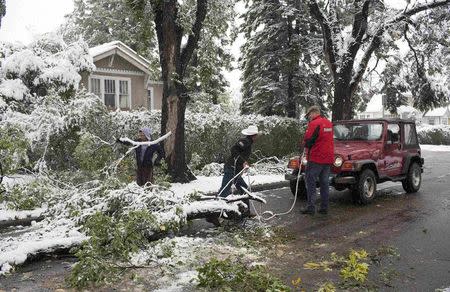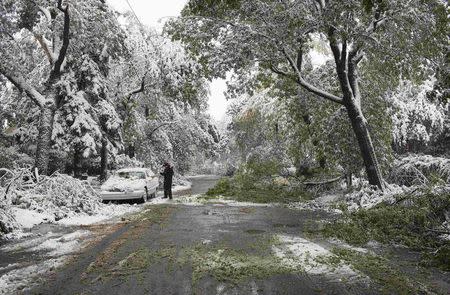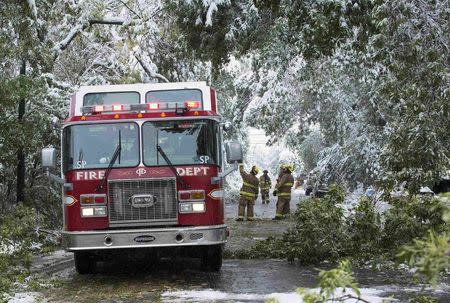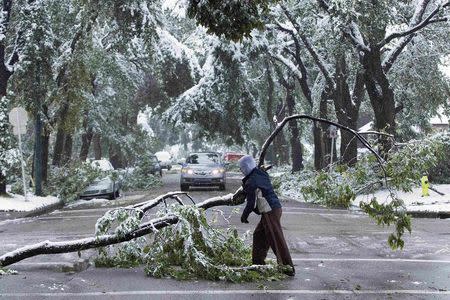Canadian city of Calgary struggles with late summer snowfall
CALGARY Alberta (Reuters) - The Canadian city of Calgary, Alberta, home to much of the country's oil and gas industry, suffered through a late-summer snowfall on Wednesday that snarled traffic, downed trees and cut power to dozens of neighborhoods. Nestled in the foothills of the Rocky Mountains, the city of 1.2 million is used to bizarre weather and heavy snowfalls are common in the winter months. But the early September storm, which has so far dumped as much as 35 centimeters (14 inches) of snow since Monday, is unusually early and especially damaging because the wet, heavy snow is landing on trees still thick with leaves. "About every decade we get a significant snow event (in September)," said Bill McMurtry, a meteorologist with Environment Canada, the country's national weather service. "This one will probably be seen as one of the worst ones, just because it happened so early in the month and we have not had a killing frost ... so we're going to see some major impacts." While damage from the snow won't rival the flood that swept through the city in 2013 causing as much as C$1.7 billion ($1.55 billion) in damages, the city's traffic was snarled and falling branches from trees landed on cars and brought down power lines. While many flights at the city's airport, a major regional hub, were delayed, there were few major impacts from the storm, the Calgary Airport Authority said. Still Air Canada warned travelers that flights could be delayed or canceled due to the storm. The snow was also heavy enough to flatten wheat, barley and some canola crops in parts of Alberta, which produces nearly 40 percent of Canada's spring wheat and canola. "They're a mess, because there are large patches (of crops) that have been lodged now and are just lying every which way," said Harry Brook, crop specialist for the Alberta government. "And we're going to see quality issues." Wet conditions can bleach the color or cause kernels to sprout in wheat and barley crops, lowering their value. Snow and rain across much of Alberta will also delay the harvest, which is about one-quarter complete and slightly behind the normal pace. Below freezing temperatures could also kill crops before many of them mature. The storm is expected to peter out over the remainder of Wednesday and temperatures are expected to rise to 24 Celsius (75 Fahrenheit) by Monday, Environment Canada said. (1 US dollar = 1.0965 Canadian dollar) (Reporting by Scott Haggett in Calgary and Rod Nickel in Winnipeg; Editing by Chris Reese)

